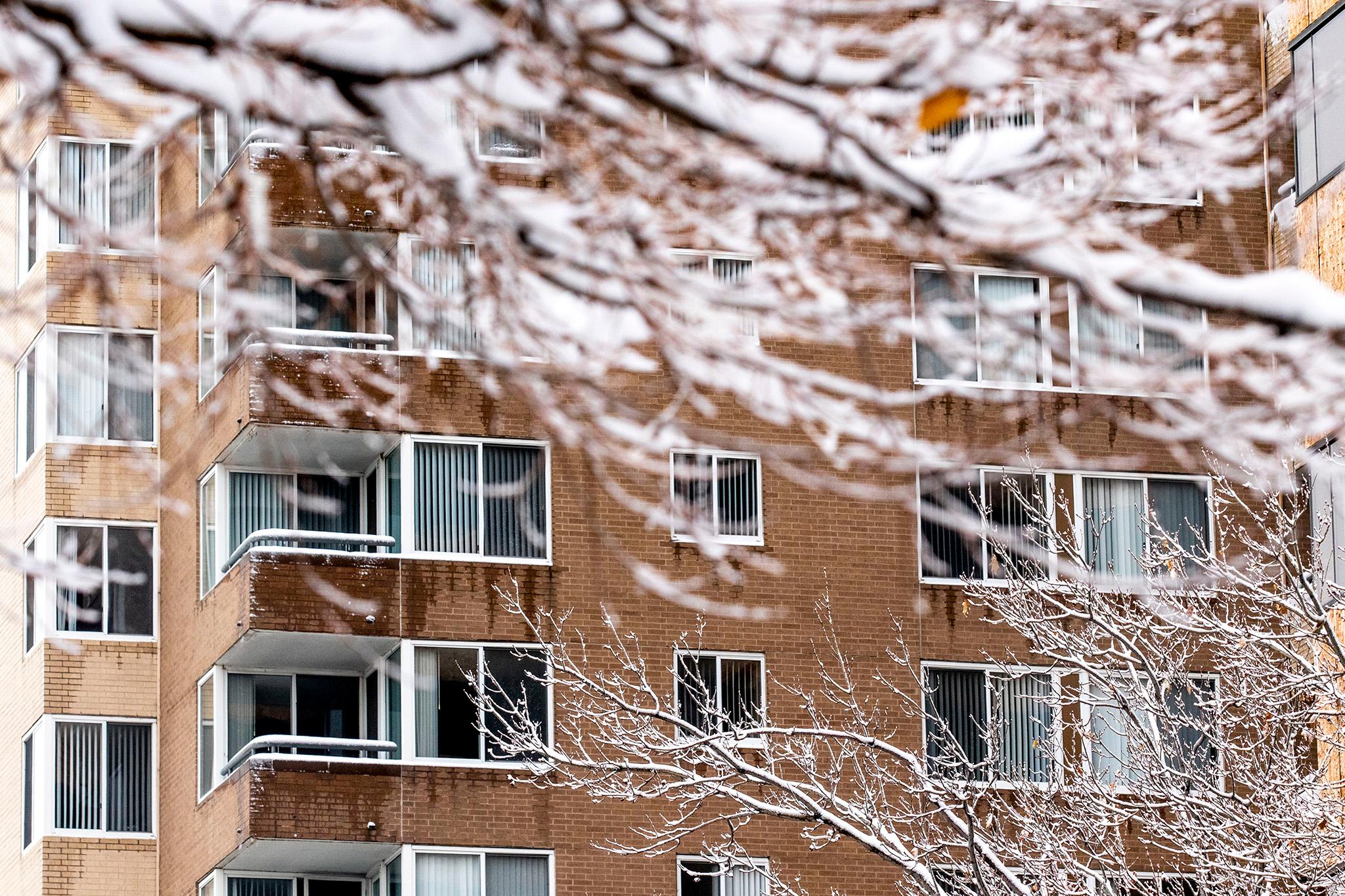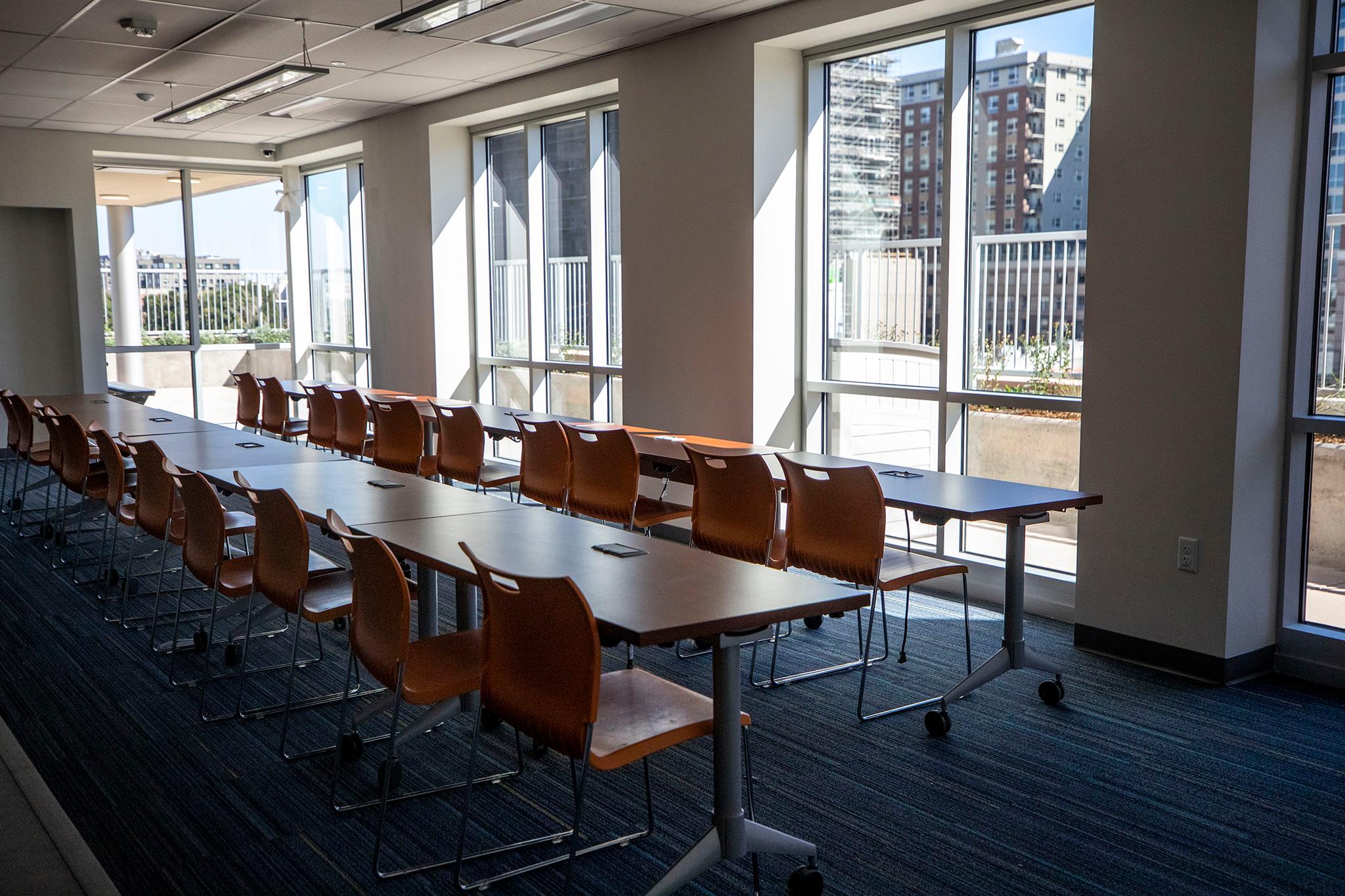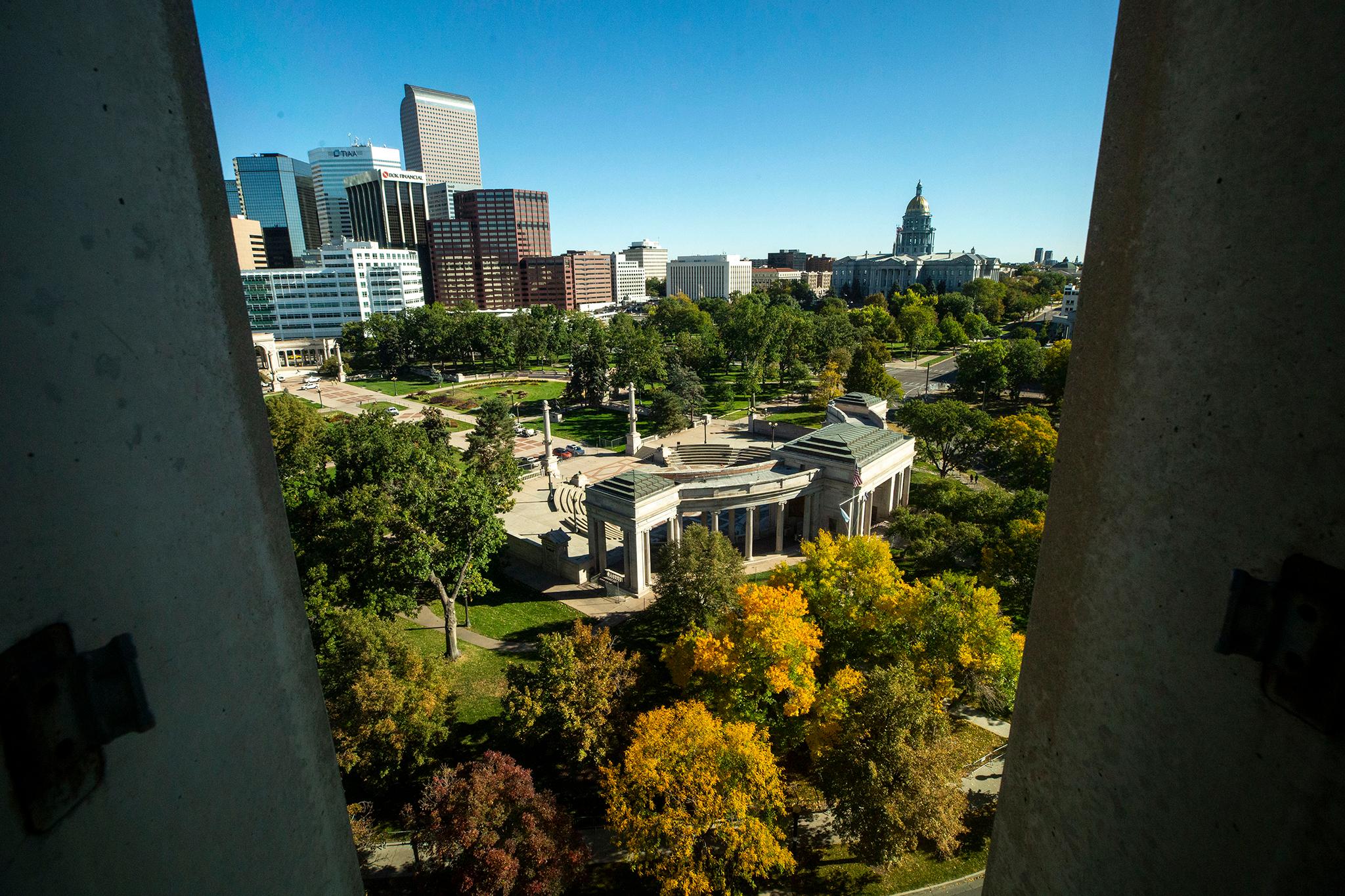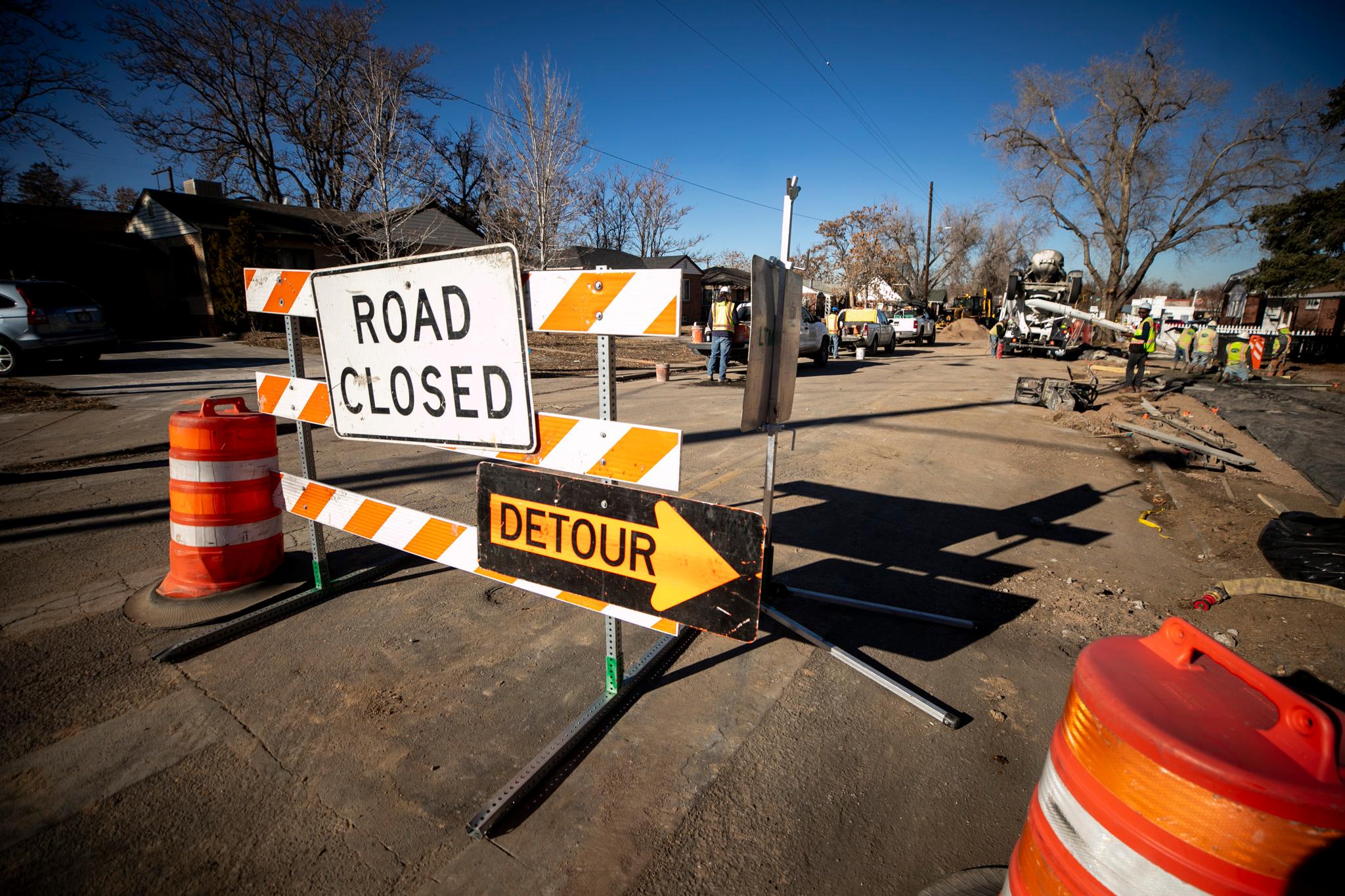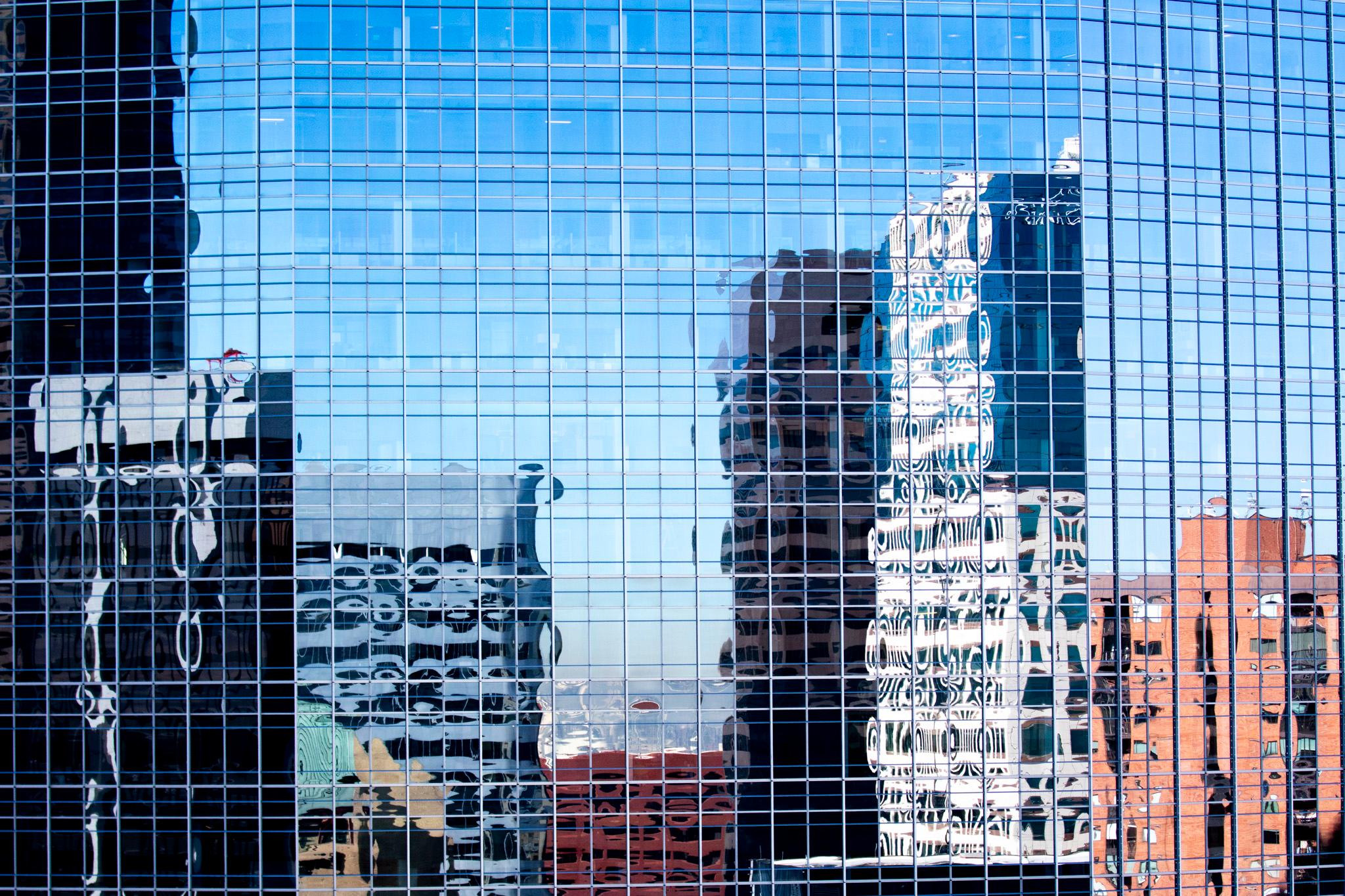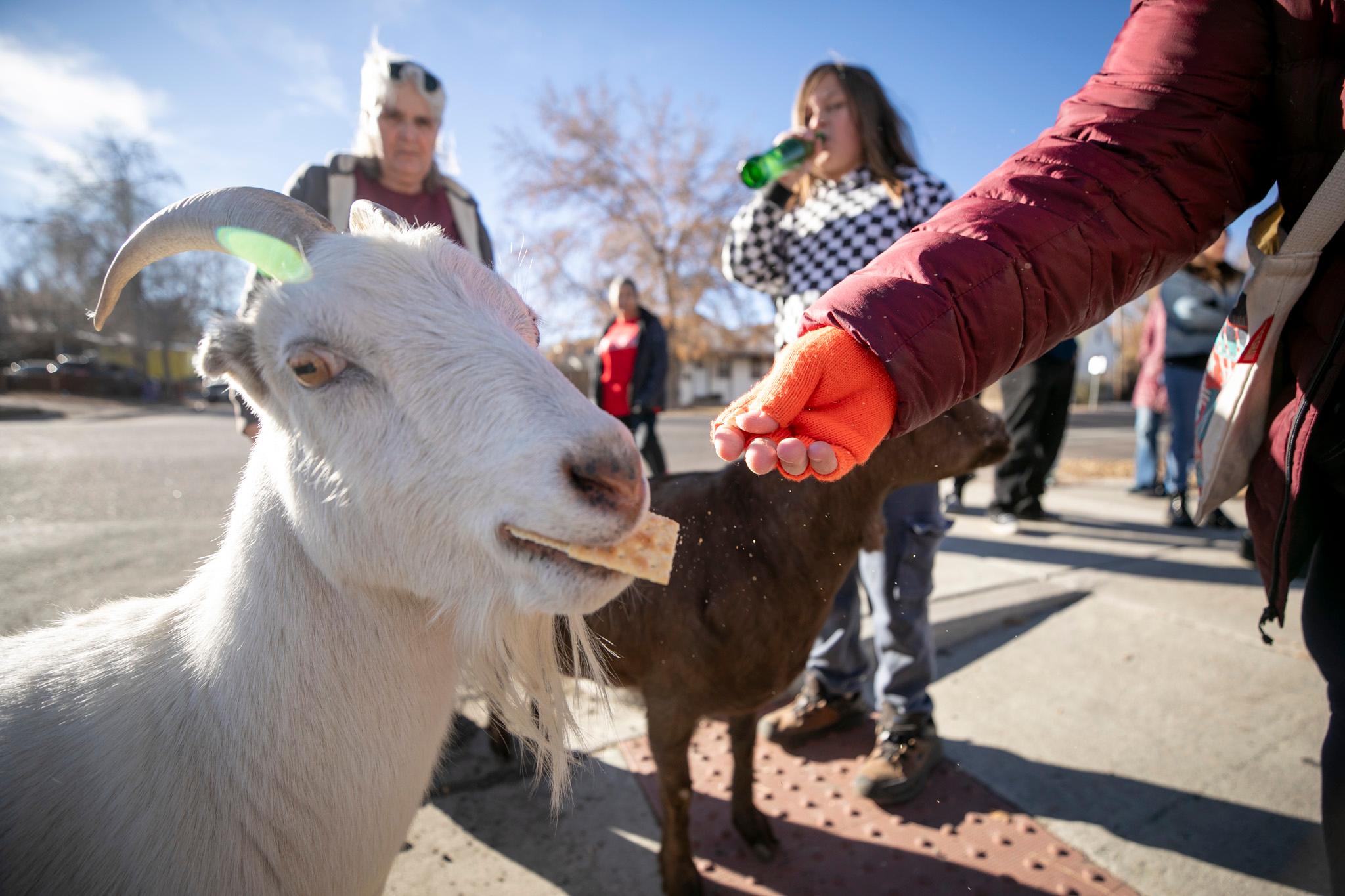Denver weather is predictably unpredictable. Gardeners know to not plant warm-weather crops until after Memorial Day -- and the cautious (or lazy, like me) wait a week or two after that. Everybody who's lived here a few years knows not to pack up their sweaters for the season.
And landlords who care about their tenants need to figure out how to keep renters warm long after winter's over.
Our coworker, Colorado Public Radio Audience Editor Sarah Bures, found herself shivering in her Denver apartment during the recent tree wrecking snow.
Her landlord had warned residents that a snow was coming and that they should close the windows to stay warm. Turned out: That wasn't so effective.
Bures filed a maintenance request and tried to contact her property manager to get the landlord to crank up the heat to a reasonable level, but she hit a dead end and borrowed a space heater from a friend.
Eventually, the landlord admitted that turning on the building's boiler took too much effort at this time of year.
So was the landlord working within the law, Bures wondered. And are there Denver renter laws that require landlords to provide heat if the temperature drops below a certain threshold?
Denver's Department of Public Health and Environment has a document called "Governing Residential Health" that answers the question for any housing in Denver, including apartments and condos.
"Every dwelling and dwelling unit shall have heating facilities that are installed in an approved manner and are maintained in sound condition and good repair, and are capable of safely and adequately heating all habitable rooms, bathrooms and water closet compartments located therein to a temperature of at least seventy degrees Fahrenheit (70'F) at a distance three (3) feet above floor level, when the temperature outside is minus five degrees Fahrenheit (-5'F). Such heating equipment shall be operated as reasonably necessary to maintain a temperature in all habitable rooms of seventy degrees Fahrenheit (70'F)."
What does that actually mean?
"It says the temperature has to be at least 70 degrees, even when temperatures are minus 5 degrees," said DDPHE spokesperson Tammy Vigil. "So the landlord needs to maintain that temperature when it's cold out."
And tenants, living in buildings without heat, have every right to report their landlords to the city by calling 311 or reporting a problem online.
Are landlords required to provide such heat when outdoor temperatures are low -- but not five-degrees-below-zero low?
Vigil contacted a residential health investigator who sent her the following note: "Yes, the landlord would be in violation of the regulation if they do not provide heat of at least 70 degrees on cold days.
"A tenant can call 311 to file a complaint and we will send an investigator out," the investigator continued. "If the investigator finds the complaint to be founded, they will issue a Notice of Violation to the property manager/landlord/owner requiring them to correct the problem. If they fail to comply, we can issue administrative citations (fines) or a summons to appear in court."
What about on hot days? Do landlords have to keep buildings cool with air conditioning or some such?
There is no amount of outdoor heat that would force a landlord to cool things down.
"When it's warm," said Vigil, "the landlord is not required to maintain that level of comfort, since air conditioning is not required."

